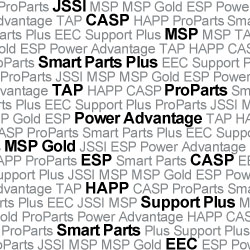Contributed by Jason Duhs and Dennis VanStrien, Airframe Service Sales Reps.

Aircraft aftermarket programs offer some very real advantages to business aircraft operators, especially when it comes to budgeting. Many of these programs are purchased after the manufacturer warranty expires for the aircraft. While it’s unlikely that an aftermarket program would be overlooked by a service provider, it’s always a good idea to talk about which programs apply to your aircraft and your parts ordering preferences.
1. Identify Maintenance Programs
Always provide a list of aftermarket programs that apply to your aircraft. Service providers should always research or request aircraft program information before asking for your signature on a maintenance service agreement. However, in cases where service sales representatives might be out of the office, this step might be overlooked by well-intentioned support staff.
Providing a list of applicable programs will help a service center coordinate services appropriately. Providing access to the aircraft’s maintenance tracking service and logbooks beforehand will also help a service provider identify service bulletins or other services that might be required for your aircraft.
2. Ask About Warranty Coverage for Avionics Retrofits
Ask about the material, equipment and workmanship warranties that cover an avionics retrofit. Some equipment is warranted for one year, others for five years. If you opt for serviceable equipment (used equipment) to be installed, there’s no equipment warranty.
It’s easy to forget when an avionics equipment warranty will expire. When it does expire, operators may want to consider an avionics service plan like the Honeywell Avionics Protection Plan (HAPP) or Rockwell Collins’ Corporate Aircraft Service Program (CASP), depending on what system was installed.
Depending on the service provider, workmanship can be warranted for as long as three years. For example, Duncan Aviation provides a three year / 1500 hour warranty on avionics installations.
3. Clarify Parts Ordering Preferences
Tell your service provider how you want to handle parts ordering. This helps ensure that any covered parts are ordered by the right people, through the correct venues. Some operators prefer to order their own parts, others leave it to their service center. Make sure your sales representative and lead technician understand your preferences before work begins on your aircraft.
Duncan Aviation provides support for several aftermarket programs for business aircraft. Engine programs we support include Jet Support Services, Inc. (JSSI), Honeywell’s Maintenance Service Plan (MSP) and MSP Gold, Pratt & Whitney Canada’s Eagle Service™ Plan (ESP®), Cessna’s Power Advantage and Williams’ Total Assurance Program (TAP). Avionics programs we support include HAPP and CASP. Parts and consumables programs include Cessna’s ProParts (part of Power Advantage) and Bombardier’s Smart Parts and Smart Parts Plus. We also support Embraer Executive Care (EEC) and Raytheon’s Support Plus.
Please contact a Duncan Aviation rep. for more information about the aircraft aftermarket programs we support.
Jason Duhs serves as an Airframe Service Sales Rep. at Duncan Aviation’s Lincoln, Neb. (LNK) facility, specializing in Citations and King Airs. He began his aviation career in 1996. Dennis VanStrien serves as an Airframe Service Sales Rep. at Duncan Aviation’s Battle Creek, Mich. (MI) facility, specializing in Citations. His career in aviation began in 1976.


